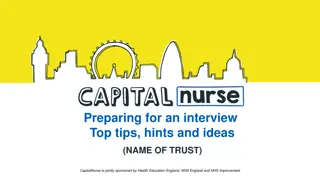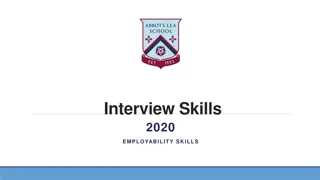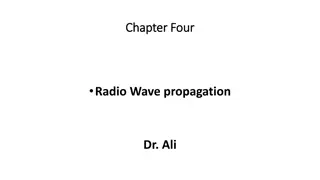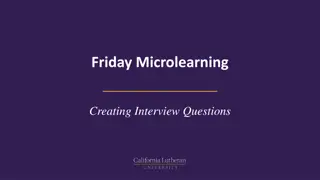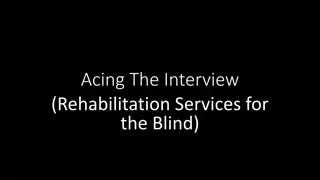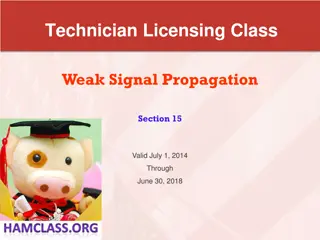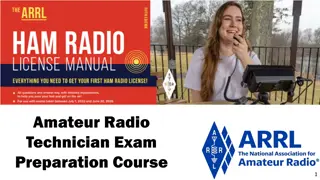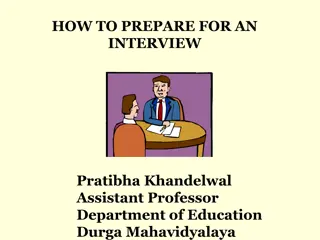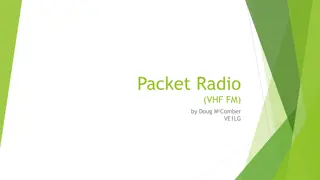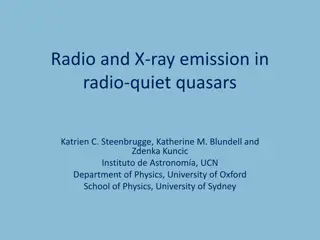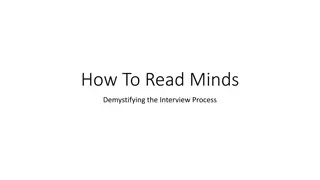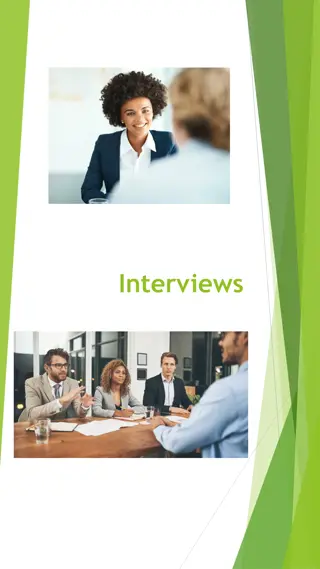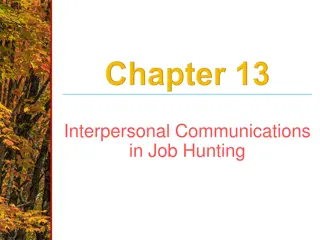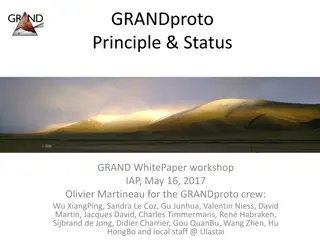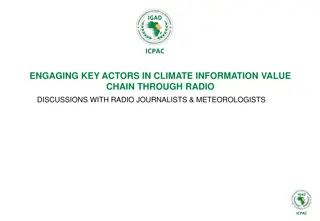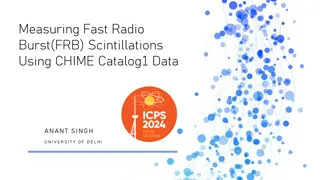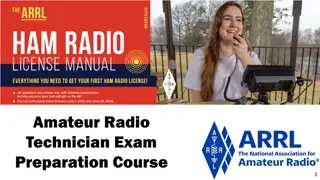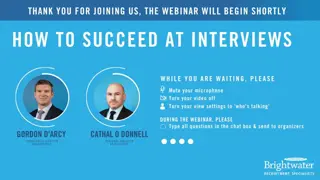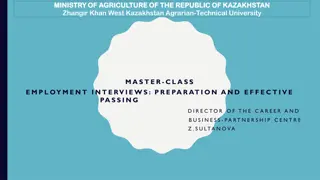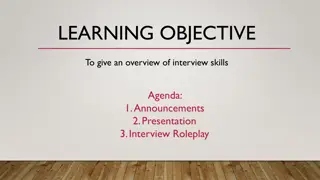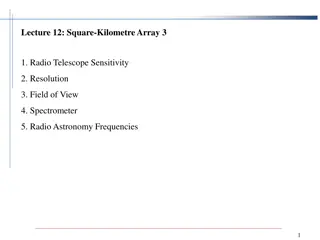Insightful Guide to Conducting a Radio Interview
Constructing and conducting a radio interview involves entertaining, informing, and persuading an educated audience. The language should be formal yet conversational, with natural speech elements like ellipsis and humor. The interview structure comprises a thoughtful introduction, engaging body with balanced discussions, and a concluding reflection. Emphasizing open-ended questions and equal expertise sharing between the host and the guest is key to a successful radio interview.
Download Presentation

Please find below an Image/Link to download the presentation.
The content on the website is provided AS IS for your information and personal use only. It may not be sold, licensed, or shared on other websites without obtaining consent from the author. Download presentation by click this link. If you encounter any issues during the download, it is possible that the publisher has removed the file from their server.
E N D
Presentation Transcript
RADIO INTERVIEW CONSTRUCTION
PURPOSE OF A RADIO INTERVIEW To entertain a particular audience To inform and persuade the audience to share the views of the expert or at least provoke them into thinking about the topic To discuss a particular topic and may highlight differences in opinion To consider a topic from a particular perspective
AUDIENCE Educated and informed Australian with an awareness of the political content
LANGUAGE Formal but also conversational High modality because we have two educated people with authority in discussion Can refer to literary terms and metalanguage because of educated audience Can have challenging, insightful questions and answers
USING NATURAL SPEECH Include ellipsis Include exclamation marks where necessary You may use laughter/humour but don t chuckle in every question You may use capitalisation to emphasise a point You may suggest an interruption as part of clarification of a point
STRUCTURE OF AN INTERVIEW INTRODUCTION Greetings/Salutation Acknowledgement of title of program Acknowledgement of host name Intro into the topic and the guest expert for today with brief personal context and what they are well known for what ideas and topics The introduction must include a thesis - what will be the angle of the interview today? You might even suggest an occasion for why you are interviewing them today anniversary of indigenous event, environmental day UN
BODY OF THE INTERVIEW Avoid too many questions Avoid too many block answers lengthy responses There should be a balance and a discussion that allows host and guest to show equal expertise It should be question and answer style but avoid closed questions focus on open-ended questions
CONCLUSION Try to round up the discussion by either showing as the host how the discussion has broadened you awareness or perhaps the audience about the concept of representation and also the values of the composer. Alternatively, you can let the guest round it up and then make a comment along the lines of and on that insightful note, unfortunately we have run out of time. We thank you for joining us today and we again congratulate you on your prolific body of work which has shaped the distinctive voice of Australia. Use an ending such as We welcome our audience to tune in next week for our special series of interviews on Australia s most prominent playwrights and their
QUESTION TYPES The host needs to be an expert and have read the texts and know the background. Different styles of questions: 1. I noticed that you have a propensity to use images of deterioration across your poems as part of your representation of the parallels between humans and nature. Statement 2. Is it fair to say that your poetry is both personal and polemical? How would you define it? Question with a judgement attached 3. Each composer uses representational devices to convey their specific attitudes and values. What would you say are some of your most effective examples of devices that convey your particular love for the landscape? Question asking about techniques 4. Fiona Capp points to her travels into your poems as controversial because the imagined landscape no longer resonates with the real landscape. Statement using an outside author that compels the guest to comment on an interpretation of their work.
QUESTION AND ANSWER TRANSITIONS Make sure that the questions and answers flow naturally from one idea to the next. Try to find ways you can segue neatly and logically from one question and answer to the next. Make sure your guest and host actually respond to the information that has been stated rather than just move to the next question without showing a reaction or natural response
EXAMPLE FROM ABC RADIO Read or listen to radio interviews and get an idea of the questions and structure of their interviews Poetica ABC radio national Conversations with Richard Fidler - ABC Hack Half Hour on Triple M



